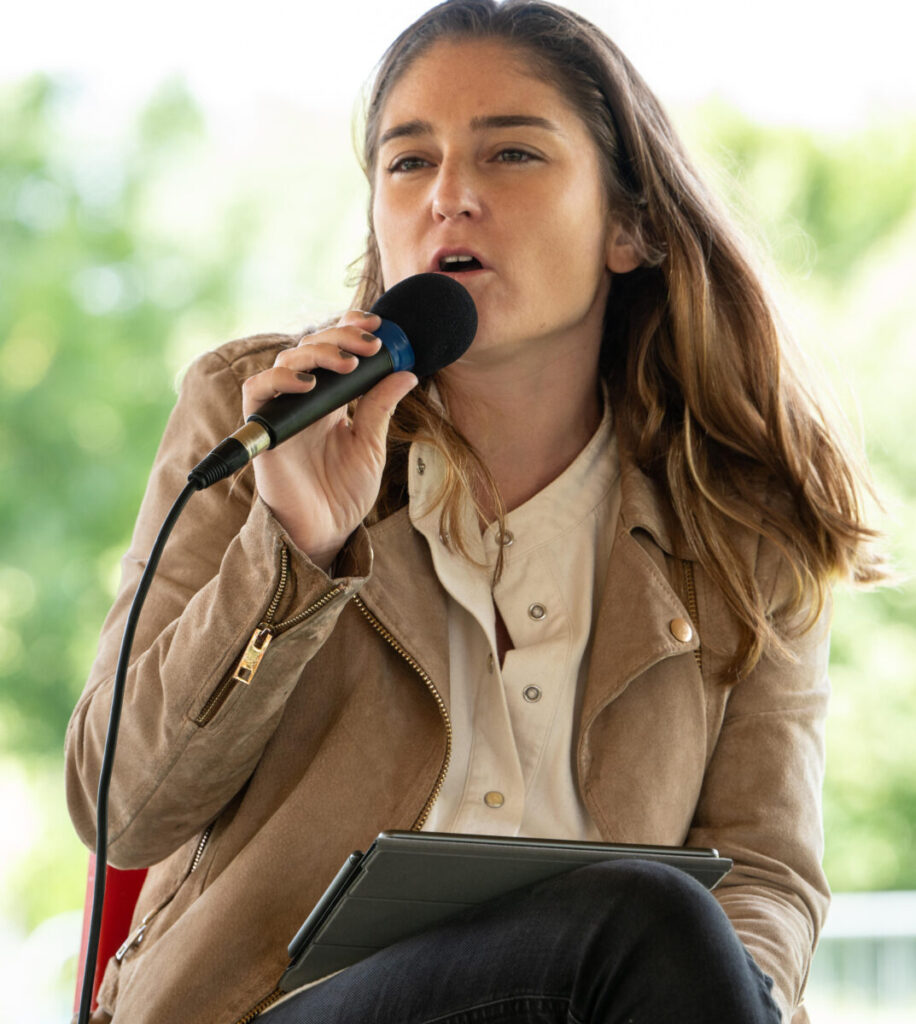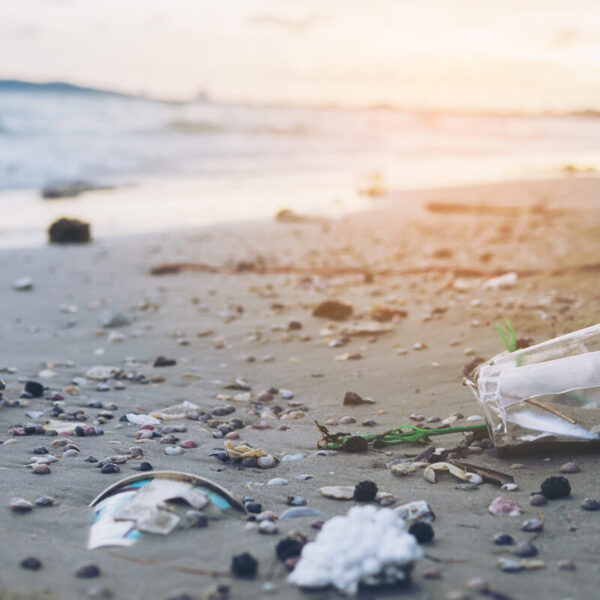Harming nature, causing serious, lasting, or irreversible damage… is committing ecocide! Yet, the law still too often treats these ecological harms as mere offenses. That is why, all around the world, lawyers and activists are fighting to criminalize these acts. Like Marine Calmet, at the head of Wild Legal, who makes a powerful call: recognize the rights of the Ocean, because living with the living is no longer an option — it is a necessity.
“Decolonizing the law,” rethinking our relationship with the land and nature: this is what lawyer and activist Marine Calmet is working on with the association Wild Legal. A commitment that took root early in this young woman, whose father, it is true, was an oceanographer. “He passed on to me his love for the sea and the living, as well as a strong intolerance for injustice,” she explains. Her university path will ultimately not be that of an auctioneer, but will take the direction of a legal career. “Because the law is an essential tool for addressing such issues.”
A call for the rights of the Ocean

It is March 2025. With her eyes on the blue, Marine Calmet enjoys the Marseille sun while stirring a coffee. The thirty-something is here on a mission with diver and marine biologist François Sarano to present a “Call for the Rights of the Ocean,” a platform signed by personalities from the sea, elected officials, scientists, associations, and engaged citizens (bonus). This year is indeed crucial for ocean protection with the United Nations Conference on the Oceans, which will take place in Nice in a few weeks.
Launched on March 6 from Marseille, this call aims to be the support for a large mobilization in France and internationally, to have the rights of the Ocean included in the Declaration that will be adopted there. UNOC-3 could thus mark a historic turning point for the protection of marine life and our common future.
Among the early signatories are the City of Marseille and several elected officials. As well as Patricia Ricard, president of the Paul Ricard Oceanographic Institute, Guillaume Thieriot, project manager for the Year of the Sea 2025, Laurent Ballesta, photographer, diver, Guillaume Néry, freediver, double world champion, and Gilles Bœuf, biologist, former president of the National Museum of Natural History...
Recognizing rights for rivers
French-Austrian, Marine Calmet notably studied comparative law in Germany, “where the subject of ecology is very strong.” She then became interested in the customary law of the indigenous peoples of French Guiana, “in which private and individual property over land does not exist.” During her stay in this overseas region, she became involved in the fight against the immense mining project called Montagne d’Or, which posed serious threats to the biodiversity of the Amazon rainforest.
Upon her return to mainland France in 2022, the young woman founded Wild Legal, an NGO committed to legal transition and the rights of nature. As part of this experimental and interactive program, students, experts, and citizens collaborate for the Rights of Nature. The program, experimental and interactive, involves students, experts, and citizens. It pertains to both method and media. “With the idea, in particular, of incubating and teaching new legal models in which nature has rights.”
Law students are thus invited each year to work on a practical case presenting an urgency. This is done in connection with stakeholders from the affected territories, for example, Longitude 181, which fights for the renewable moratoriums that protect groupers and sea breams in the Mediterranean (every ten years for the former and five years for the latter) to become permanent. This association also advocates for tourists to be aware that it is often demand that drives overfishing.
“We want to illustrate the flaws in our law and propose new legal tools. Whether they are laws or regulations.” The activist draws on what is happening elsewhere. The constitution of Ecuador, for example, recognized the rights of nature in 2008, notably the rights of the ecosystems of the Galapagos Islands and mangroves to thrive in good health.
And protect ecosystems
Other countries have made similar commitments: Panama (for sea turtles), Belize, Cape Verde, Australia. Furthermore, commitments are sometimes made at the city level. Malibu and San Francisco have signed charters to protect dolphins and whales in their coastal waters. “It is important for coastal cities to acknowledge their connection to nature.”
In France, the fights concern notably the red muds of the Mediterranean and green tides in Brittany. Around the Mediterranean, it is the posidonia meadows that are the focus of all attention. Protected by the Bern Convention (Annex 1) and the Barcelona Convention (Annex 2), these meadows have been identified as “priority habitat” under the European Directive of 1992 “Habitats, fauna, flora.” In France, they are protected by a ministerial decree of July 19, 1988 (list of protected marine plant species). Yet, despite these numerous protection statuses, anthropogenic pressures related to coastal use still pose a threat.
In the realm of aquatic ecosystems, there is certainly the coastline and the ocean, but also rivers and streams. That is why Wild Legal also supports about fifteen territories in France, such as the Garonne (Occitanie, New Aquitaine, Spain) or the Seine, around the fight “My river is me.” “The issue is progressing because the major droughts have alarmed many elected officials,” observes Marine Calmet. “They realize that their territory is poorly prepared.” In Corsica, in 2021, a collective of associations thus proclaimed rights for the Tavignano river.
However, the task is immense: “It is the fight of a lifetime,” admits the activist. “Because when these rights are recognized, they will still need to be defended, ensured their application. Their respect.” This is no longer negotiable; we must all learn to coexist with the living.
A petition is being carried by an international collective of NGOs committed to defending the Ocean. It includes, in France, the associations Wild Legal, Longitude 181, and Vagues, as well as Earth Law Center, Ocean Vision Legal (USA), and the Global Alliance for the Rights of Nature. To sign it click here.

Featured photo: Protecting the oceans is of crucial importance © Freepik
